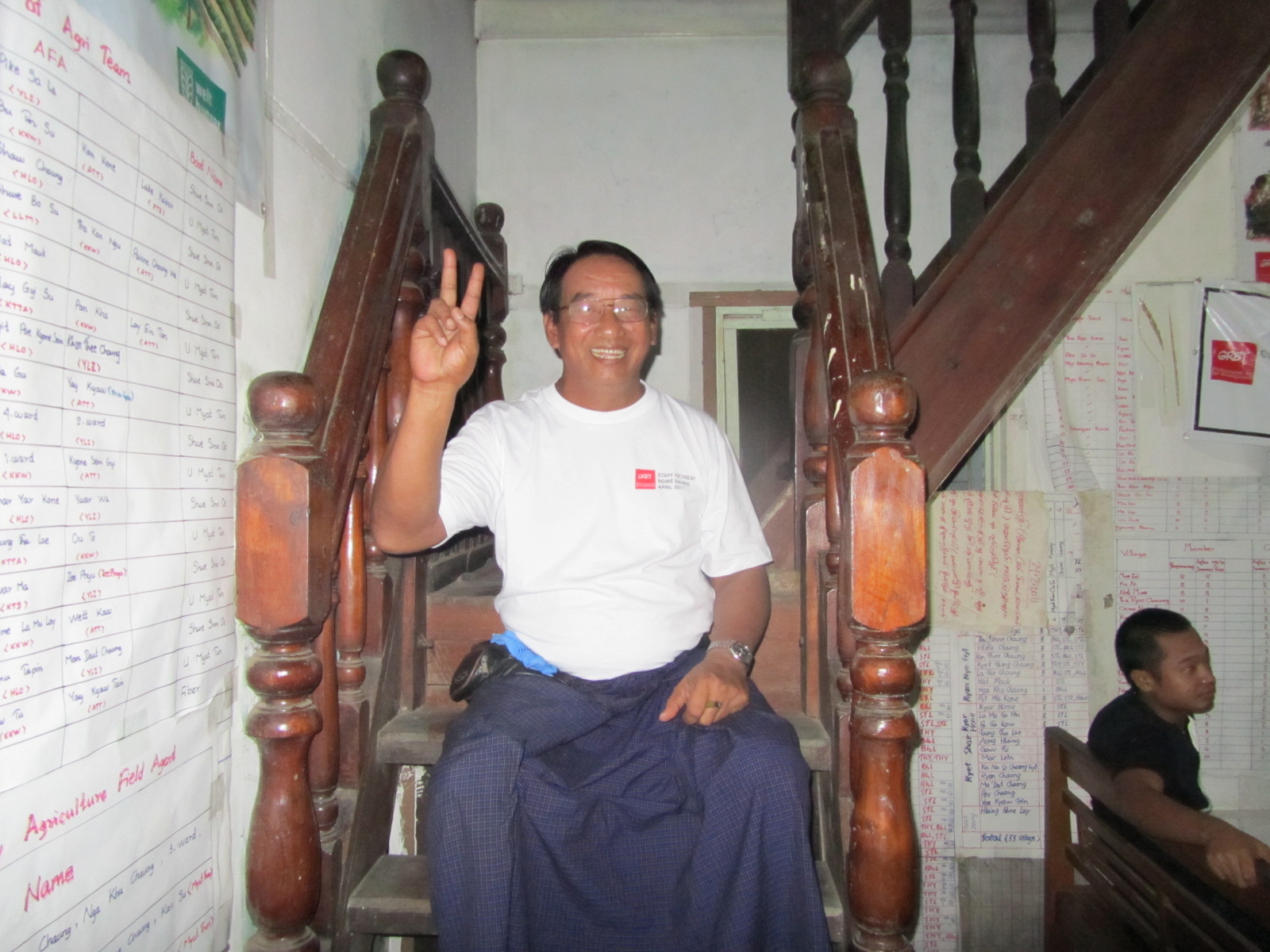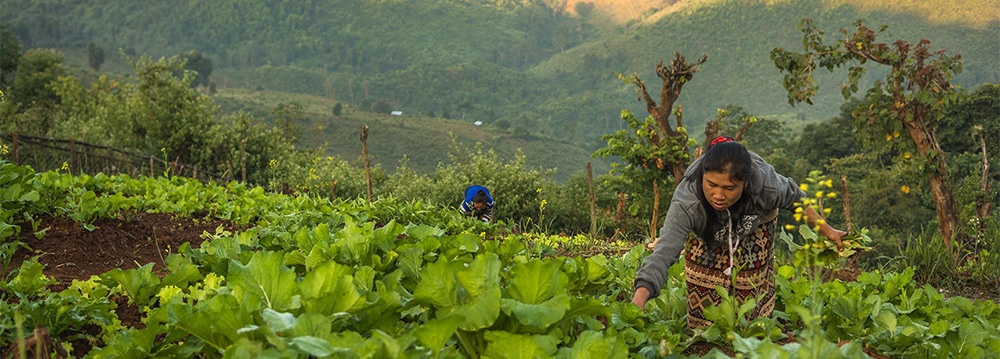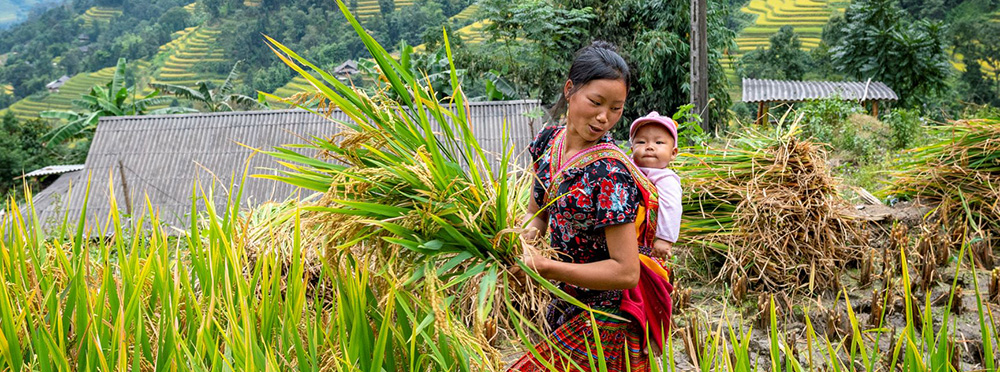Faced with severe climatic constraints and chronic food insecurity, farmers in Myanmar’s Dry Zone are benefitting from technical support provided by GRET via its farming innovation programme. One of these farmers, U Win Bo, tells us his story…
Since 2011, GRET’s teams have been implementing and disseminating various tried-and-tested agricultural techniques for the most vulnerable farmers in Myanmar. In six municipalities in the Dry Zone, these teams set up pilot centres to promote water and soil conservation. In all, almost 5,000 small farmers are participating in this programme, supported by the Myanmar ministry of Agriculture and funded by Danida (2011-2015), and subsequently by the Cartier Charitable Foundation and Find (2015-2018).
U Win Bo is one of the farmers participating in GRET’s farming innovation programme. Work on his two hectares of degraded land in Nyaung Pin Thar, a village in the Sagaing region, did not previously enable him to sufficiently support his family of eight. In 2012, he joined GRET’s programme and was trained in soil conservation and fertilisation techniques. Thanks to his savings and micro-funding from the organisation, he is applying the project recommendations in his field, by digging trenches and erecting wind breakers and dykes. One year after he started doing this, U Win Bo noticed a vegetated area at the end of his field. Three years later, in 2016, he realised that this same area remained damp during the dry season and he decided to dig a well there. 4 metres down, he noticed that the water was rising almost to ground level, and realised that the changes he had made to his land enabled regeneration of the groundwater table. Tests conducted with GRET’s experts showed that the quality of the water was good and ready to be used for crops. And so, in 2016, U Win Bo and his family planted 1,200 tomato plants, irrigated by water from the well. Three months later, at the end of October, the family harvested 1,600 kilos of tomatoes, generating income of 300,000 MMK, i.e. approximately 200 euros. This sum was all the more important as cultivation generally stops in the month October, which is usually a financially difficult time for farmers in the region. “For my family and I, the water in the well changed to gold”, says U Win Bo. In addition, profits made from selling the harvest enabled U Win Bo to invest in developing other crops with high added value such as chilli. With support from GRET, he is now planning to perpetuate these soil conservation and fertilisation techniques.
The context
The Dry Zone of Myanmar extends over an area of more than 54,000 km² and is home to 14 million people, i.e. a quarter of the country’s population. In this central region, the consequences of climate change are weighing heavily on agriculture, with recurrent droughts often followed by heavy rains and sudden flooding. These conditions have a severe impact on local farmers, generating a decrease in their yield and income as erosion of the soil accelerates. This situation is compounded by inappropriate agricultural practices that have led to a disastrous decrease in soil fertility. The poorest farmers are the first to be affected by this environmental degradation. Faced with a lack of resources and equipment, exodus to the cities is often the only option for households to provide for themselves.
The project
The project, implemented by GRET with the support of the Cartier Charitable Foundation and Find, aims to improve the resilience of small and average farmers in the dry plains of Myanmar via dissemination of appropriate and sustainable agricultural techniques to farmers, and to improve collaboration with local training centres and institutions. This global, multi-stakeholder approach facilitates collective awareness of the issues and contributes to making GRET’s actions sustainable.





